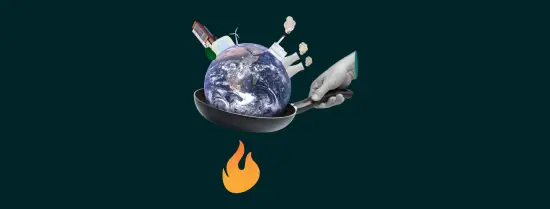Education and research. In these areas, we can really make a difference as a university around sustainability. Sustainable development is already high on the agenda. But it has to become part of our DNA. How? Fully integrate sustainability in our education. Focus in research on sustainable solutions in the broadest sense. From income inequality to the energy transition. And in addition, of course, reducing our own emissions on campus. Find out how we work. We are well on our way, but we are not there yet.
Sustainable solutions in our education
EUR-students can contribute to current sustainability challenges in many different ways.
Sustainable solutions at the office
EUR-employees play a big role in our ambitious sustainability goals.
News
Sustainability in society
Rich countries emit a lot and poor countries bear most of the burden. That's climate inequality. Researcher Daphina Misiedjan explains what we can do.






